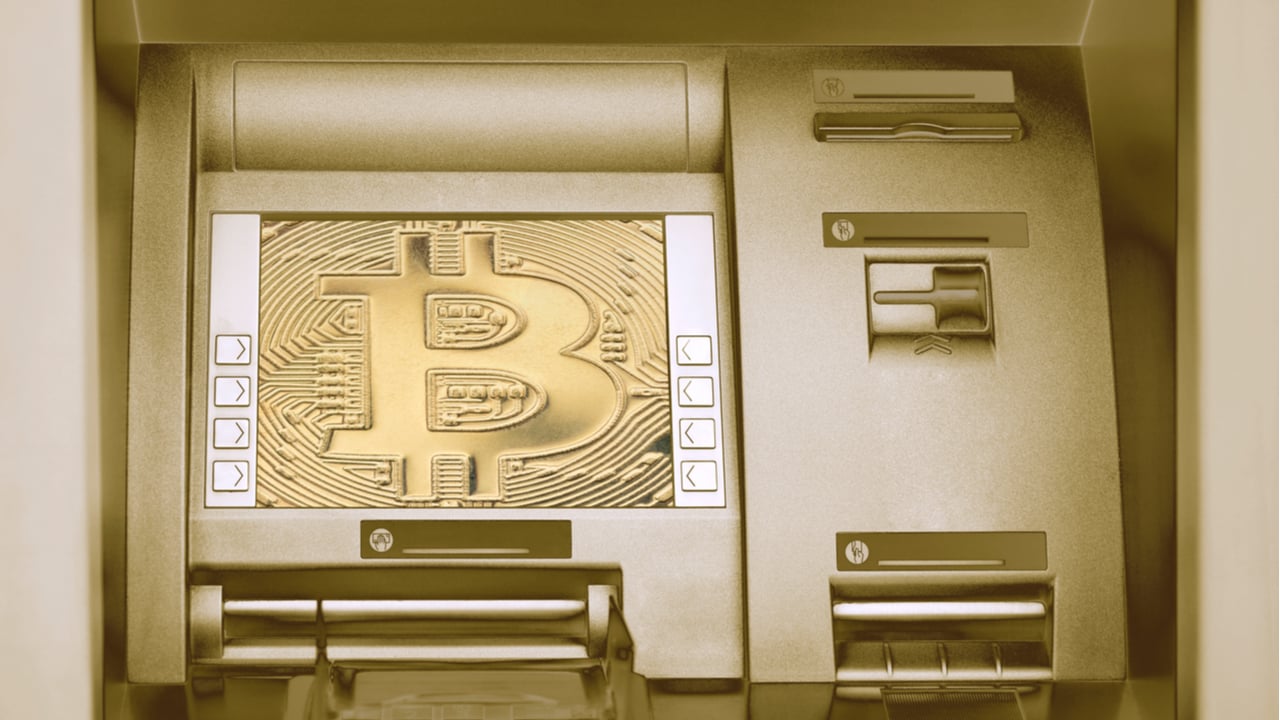 Welcome to Latam Insights, a compendium of Latin America’s most relevant crypto and economic news from the past week. In this issue, El Salvador’s President Nayib Bukele meets with President Milei in Argentina, offering bitcoin advice to the Senate, and Uruguay passes a cryptocurrency law after over two years of discussion. Bukele and Milei Meet: […]
Welcome to Latam Insights, a compendium of Latin America’s most relevant crypto and economic news from the past week. In this issue, El Salvador’s President Nayib Bukele meets with President Milei in Argentina, offering bitcoin advice to the Senate, and Uruguay passes a cryptocurrency law after over two years of discussion. Bukele and Milei Meet: […]
The recently introduced Tether BTC mining software’s primary aim is to enhance the efficient management of mining capacity, leading to more effective operations.
The developers at Tether are in the process of preparing the release of innovative JavaScript libraries. These libraries are specifically created to facilitate the transmission of commands and signals to Bitcoin (BTC) mining hardware, encompassing popular devices like WhatsMiner, AvalonMiner and Antminer.
As per a post shared on August 5 by Paolo Ardoino, the chief technology officer (CTO) of Bitfinex and Tether, certain segments of this mining software will be made available on open-source platforms in the future. The recently introduced Tether BTC mining software’s primary aim is to enhance the efficient management of mining capacity, leading to more effective operations.
Ardoino emphasized his role as a core contributor to the architecture of Moria, an orchestration instrument for mining farms. Notably, all the recent advancements are built upon Holepunch technology.
GM#Tether 's dev team almost finished to create well polished javascript libraries to command and interact with whatsminers, antminers and avalon miners.
— Paolo Ardoino (@paoloardoino) August 5, 2023
Really high quality stuff, super modular, highly polished.
I'm directly coding the core architecture of our Moria mining…
In a previous post, the Tether CTO shared insights about Moria's functionality. This mining instrument enables communication among components within the BTC mining ecosystem, enabling interactions through streamlined, secure, attack-resistant and cost-efficient means.
Ardoino explained that every device/miner will have a unique public/private key, enabling encrypted and secure data streaming (hyper cores) and command reception (via hyper swarms). This approach reduces firewall configuration complexity, enhances resilience to failures, allows easy replication across sites and creates a sense of improved maintainability and modularity compared to previous attempts.
Related: Zero transfer scammer steals $20M USDT, gets blacklisted by Tether
Despite facing legal challenges and regulatory enforcement actions, Tether has remained involved in the cryptocurrency mining sector, showcasing efforts and contributions.
Following the disclosure of its intentions to allocate a specific portion of its monthly profits towards acquiring BTC, the issuer of stablecoin, Tether, made an announcement regarding its investment in energy production and sustainable BTC mining. Through a collaboration with a licensed local company in Uruguay, the crypto protocol introduced Tether Energy to facilitate these endeavors.
Uruguay is renowned for its robust infrastructure in the renewable energy sector. Notably, nearly 100% of its electricity is derived from renewable sources, thanks to its abundant natural resources. Given these highly favorable conditions, Tether is confident that it has made the appropriate decision.

As part of its expansion into mining, Tether cited Uruguay’s capability of generating 94% of its electricity from renewable sources, including wind and solar.
Stablecoin issuer Tether has announced it will be launching Bitcoin mining operations in Uruguay.
In a May 30 announcement, Tether said it planned to start a mining arm in the South American nation “in collaboration with a local licensed company” in addition to investing in Uruguay’s energy production. The stablecoin issuer claimed the venture would utilize renewable energy sources aimed at “sustainable” Bitcoin (BTC) mining and planned to hire additional team members.
"By harnessing the power of Bitcoin and Uruguay's renewable energy capabilities, Tether is leading the way in sustainable and responsible Bitcoin mining," said Tether chief technology officer Paolo Ardoino. "Our unwavering commitment to renewable energy ensures that every Bitcoin we mine leaves a minimal ecological footprint while upholding the security and integrity of the Bitcoin network."
At Tether, we understand the importance of energy in driving progress & enabling thriving communities. That's why we're dedicated to harnessing the power of renewable energy to mine #Bitcoin, the world's most open & secure monetary network.
— Tether (@Tether_to) May 30, 2023
Learn More https://t.co/LmBQptyobi pic.twitter.com/VrG20OnE1Z
Tether cited Uruguay’s capability of generating 94% of its electricity from renewable sources including wind, solar, and potentially hydropower, as well as its reliable grid. Job listings on its website at the time of publication also suggested expansion into South Africa and Brazil.
Related: USDT market share jumps amid economic uncertainty, but USDC shrinks
The mining announcement followed Tether saying it planned to “regularly allocate up to 15%” of its profits into BTC purchases. The stablecoin issuer reported it held roughly $1.5 billion in Bitcoin as of the first quarter of 2023 — 2% of its total reserves. Tether kept most of its holdings in cash, cash equivalents and U.S. Treasury bills.
Magazine: Bitcoin is on a collision course with ‘Net Zero’ promises
 Huobi Global, one of the biggest exchanges in volumes traded, has announced a partnership to make it easier for its Latam-based customers to acquire cryptocurrencies. The exchange has allied with Astropay, a payment services platform, to allow customers in Latam to purchase cryptocurrency with fiat currencies in several countries. Huobi to Make Crypto Easier to […]
Huobi Global, one of the biggest exchanges in volumes traded, has announced a partnership to make it easier for its Latam-based customers to acquire cryptocurrencies. The exchange has allied with Astropay, a payment services platform, to allow customers in Latam to purchase cryptocurrency with fiat currencies in several countries. Huobi to Make Crypto Easier to […]
The Uruguayan government introduced legislation to the parliament on Sept. 5, accelerating industry regulation.
The Uruguayan government has introduced legislation to the parliament that accelerates the regulation of the crypto space in the country and establishes the central bank as the regulatory authority.
Introduced on Sept 5, the bill strives to clarify the country's regulatory framework for cryptocurrency assets, stating that all companies that provide digital asset-related services, including initial coin offerings (ICOs) are under the supervision of the Superintendency of Financial Services (SSF), a central bank entity. Cryptocurrency exchanges, custody services and any financial services relating to these digital assets should also adhere to Anti-Money Laundering regulations and best practices.
Additionally, the document defined four types of digital assets: stablecoins, governance tokens, tradable assets and debt tokens, saying:
"If the activity carried out with these instruments involves the exercise of financial intermediation or financial activity, it will be subject to the regulation and control of the Central Bank of Uruguay."
Last year, Uruguayan Senator Juan Sartori introduced a draft bill to regulate cryptocurrency and enable businesses to accept digital payments, seeking to “establish a legitimate, legal and safe use in businesses related to the production and commercialization of virtual currencies.”
This development is part of an ongoing wave of legislation or regulations being pursued by governments or legislators in Latin America. Brazil's Securities and Exchange Commission is reportedly pursuing to change its legal framework to recognize tokens as digital assets or securities. In August, Paraguay’s president vetoed a bill that sought to recognize cryptocurrency mining as an industrial activity, arguing that mining’s high electricity consumption could hinder the expansion of a sustainable national industry.
 The Central Bank of Uruguay has issued a summon to Binance, one of the biggest exchanges in the world, due to the series of crypto-based savings products they are offering in the country. These savings products, according to the bank, can only be made through verified banking institutions or by companies that issue equity in […]
The Central Bank of Uruguay has issued a summon to Binance, one of the biggest exchanges in the world, due to the series of crypto-based savings products they are offering in the country. These savings products, according to the bank, can only be made through verified banking institutions or by companies that issue equity in […] The Department of the Interior of Uruguay is taking steps to warn users about the danger they face when investing in certain crypto projects that could be scams. The campaign is called “Fake Coins: Cryptocurrency Scams” and seeks to educate the population about the most common kinds of crypto scams. Uruguay Educates on Crypto-Related Scams […]
The Department of the Interior of Uruguay is taking steps to warn users about the danger they face when investing in certain crypto projects that could be scams. The campaign is called “Fake Coins: Cryptocurrency Scams” and seeks to educate the population about the most common kinds of crypto scams. Uruguay Educates on Crypto-Related Scams […]
Uruguay’s first crypto ATM has been installed in the coastal city of Punta del Este, a major tourist attraction in the region.
Uruguay has reportedly installed its first Bitcoin (BTC) ATM, making it the 11th South American country to publicly encourage crypto adoption. Prior to Uruguay’s involvement, South America hosted 79 ATMs, which represented 0.2% of global BTC ATM installations.
According to Ámbito, Uruguay’s first crypto ATM was installed in the coastal city of Punta del Este, a major tourist attraction in the region. Uruguay’s first Bitcoin ATM was developed and installed in partnership with two local crypto companies — URUBit and inBierto.
The crypto ATM in Uruguay currently supports withdrawal and deposits of five cryptocurrencies, namely — BTC, Binance Coin (BNB), Binance USD (BUSD), Ferret Token (FRT) and Urubit (URUB). FRT and URUB are in-house cryptocurrencies managed and distributed by URUBit and inBierto respectively.
Adolfo Varela, the CEO of inBierto, confirmed that the initiative was 100% funded by the government of Uruguay. inBierto is a crypto investment platform, who is also a member of the Uruguayan Chamber of Fintech (Cámara Uruguaya de Fintech), a startup accelerator focused on the fintech sector. URUBit is a decentralized token created in Uruguay and deployed in the Binance Smart Chain (BSC).

Data from Coin ATM Radar shows that Colombia leads the South American market with 31 crypto ATM installations to date, who is followed by Brazil and Argentina at 22 and 11 installations respectively.
Other South American countries such as Ecuador, Venezuela, Aruba and Saint Kits and Nevis have also installed one crypto ATM.
inBierto has not yet responded to Cointelegraph's request for comment.
Related: Uruguayan senator introduces bill to enable use of crypto for payments
Last year, an Uruguayan senator introduced a draft bill seeking to regulate cryptocurrency and enable businesses to accept crypto payments.
As Cointelegraph reported, senator Juan Sartori was not keen on adopting crypto as a legal tender. Instead, he suggested:
“Today we present a bill that seeks to establish a legitimate, legal and safe use in businesses related to the production and commercialization of virtual currencies in Uruguay.”
 The ostensible first cryptocurrency ATM machine has been installed in Uruguay, developed as a joint initiative between Urubit and Inbierto, two national crypto companies. This represents a milestone for the country, which according to estimates has between 40K and 50K cryptocurrency users, whose primary avenue for purchasing crypto relies on peer-to-peer markets. Uruguay Enters the […]
The ostensible first cryptocurrency ATM machine has been installed in Uruguay, developed as a joint initiative between Urubit and Inbierto, two national crypto companies. This represents a milestone for the country, which according to estimates has between 40K and 50K cryptocurrency users, whose primary avenue for purchasing crypto relies on peer-to-peer markets. Uruguay Enters the […] A new draft law introduced to the Senate in Uruguay could regulate cryptocurrency transactions, and also legalize cryptocurrency as an accepted payment method in the country. If approved, the draft proposed by Senator Juan Sartori would also introduce licenses for Virtual Asset Service Providers (VASPs) that would be issued by the government, classifying them into […]
A new draft law introduced to the Senate in Uruguay could regulate cryptocurrency transactions, and also legalize cryptocurrency as an accepted payment method in the country. If approved, the draft proposed by Senator Juan Sartori would also introduce licenses for Virtual Asset Service Providers (VASPs) that would be issued by the government, classifying them into […]